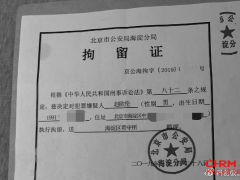The Guide reveals that despite continued disruption in the global economy brought by the pandemic and other factors, 2021 saw a surprisingly strong rebound globally and in Asia as companies and individuals adapted more quickly than expected.
“The economic rebound in 2021 has rejuvenated the job market. As many sectors are putting flexibility and wellbeing under the spotlight, more people are re-evaluating the balance between their work and personal lives,” said Jessica Wang, Managing Director of Hays China, “We noticed that in 2022, employers in Asia and in the mainland of China particularly are optimistic and confident about making more investments and expanding recruitment.”
Among all countries and regions in Asia, the mainland of China has the highest percentage of employers who are actively recruiting during 2021. It is expected to continue to lead in this regard in 2022.
Chinese employees are paid more, enjoying the highest pay rise in Asia
According to the Guide, 44% of the surveyed employers in the mainland of China expect to offer their employees a pay rise of 3% to 6%. The number of such employers is 5 percentile points more than that in 2021. Another 23% expect to offer a pay rise of above 6%, that is 6 percentile points more than last year. In stark contrast to that, in Hong Kong SAR (41%), Japan (47%), and Singapore (45%), a significant portion of the surveyed employers are planning a pay rise of less than 3%.
“Chinese economy showed stronger recovery last year than in 2020. Economic activities are more dynamic, with sectors such as life sciences, technology, and digitisation growing rapidly. As a result, employee mobility and compensation are rising. Among the surveyed employers, 84% plan to raise salary for their staff in the next 12 months, a percentage on a par with Singapore and higher than all other regions in Asia,” said Jessica.
“As the economy is rebounding, employees in the mainland of China now have much higher expectations of pay rise. As many as 47% respondents from the mainland expect to have their salary increase by above 10%, whereas in 2021, only 3% respondents expected the same,” noted Jessica. “Besides, 55% of the mainland respondents are open to new opportunities.” These all indicate that professionals in China are optimistic about the economic prospects of 2022.
Sharp rise in talent demand in high-tech sectors
Since 2021, in the context of come-and-go outbreaks of COVID-19 and China’s clear shift towards higher quality macroeconomic growth, many sectors in the mainland of China have been seeing major boosts.
With the strong growth in various sectors, demand for talent is even greater. Jessica expects that the mainland of China will see increasing demands for talent in high-tech sectors such as life science, IT, AI, digital transformation etc. Candidates with outstanding skills and multi-disciplinary background will continue to enjoy strong bargain power in the job market.
The Guide holds the view that Chinese companies are raising the qualification bar for candidates as they begin looking for higher-calibre technical talent with complementary skills such as operation capabilities, business acumen and stakeholder management abilities. As a result, longer hiring times may become the norm.
In 2022, more businesses in various sectors are being enabled by IT and digital transformation. Hays observed that many companies are investing heavily into building strong data platforms to enable next generation business intelligence, particularly in the Life Sciences and Financial Services industries. Data Architecture, Data Scientist, and Data Analysis roles will become priority hires.
With industries like Pharmaceutical, Automotive, FMCG and Luxury Retail undergoing rapid digitalisation by adopting cloud and e-commerce technologies, Software Engineering and DevOps talent will be highly sought after.
Cybersecurity is also a field to watch. The increasing prevalence of digital platforms and cloud technology is raising security and privacy concerns, and a major focus for Chinese companies
in the year ahead is to strengthen cybersecurity capabilities and ensure regulatory compliance. The Guide points out that cybersecurity professionals can expect up to a 50 percent increase in salary from last year’s median.
“As digitalisation transformation sweeps across sectors, all companies are craving for IT talents and causing more active flow of talents. The tech sector is hence facing some challenges in recruitment, and yet that trend in general is good for the economy. More talents with diverse backgrounds and skills brings momentum to the tech industry while innovation coming from tech companies will continue to empower more sectors.” Wilson He, Senior HR Director at HAI ROBOTICS, a robot maker that enables warehouse automation, said.
China’s life sciences industry has seen many opportunities amidst the pandemic. The Guide notes that in 2022 the life sciences sector in the mainland is expected to gain greater momentum amidst a favourable regulatory environment and rising investments. Fields like AI-powered drug development and diagnostics, as well as next generation gene technology are emerging rapidly. Consequently, there will be increasing interactions with foreign regulators, investment agencies, research institutions, and partner companies. Competition for talent with multi-discipline background and technology expertise will be escalating.
The Guide concludes that candidates who can expect higher compensation are those who have overseas work experience, show outstanding competences, and demonstrate strong management skills.
Dr Lurong Pan, founder and CEO of Ainnocence, an AI driven next-generation biotech company, said, “Scientific research strength is the core competitiveness of the drug discovery industries. The building of such strength requires an efficient collaboration of talents with interdisciplinary, multilingual training and cross-domain scientific, technological and business backgrounds. This type of talent pool is quite rare in the world. Therefore, in addition to improving salary and treatment during talent acquisition and retention, enterprises should also consider building a sustainable corporate culture with flexible work, work-life balance, and soft skill development, so as to increase the long-term development and competency of the work force.”
Flexibility in work becomes an inevitable choice for employers
The incessant outbreak of COVID has made “flexibility” a keyword for the world of work across the globe and China is no exception. Over the last two years, employees and employers alike have gradually adapted to the flexible work mode. Face-to-face meetings were moved online, and an increasing number of employees are valuing work-life balance more than before.
According to the Guide, most respondents who are on the lookout for new job opportunities indicated that they have grown used to having some degree of flexibility in work patterns, and that it is a critical factor when assessing a new role. Jobseekers prefer having the choice of home or mobile working, and favour the ability to change working hours, e.g. moving outside of the regular nine-to-five.
Quite on the contrary, the Guide discovers that many employers are slow in embracing this trend, given that 45 percent of the surveyed employers indicated a lack of confidence in their organisation implementing an official flexible working policy for 2022. Hays recommends that if employers who intend to seize growth opportunities in the future should devise employee wellbeing strategies to ensure success in talent attraction and retention.
Hays also noticed a drop of scoring by employees with respect to work-life balance. The Guide shows during 2020 to 2022, respondents’ satisfaction on work-life balance has been on the decline. Percentage of those who rate their work-life balance as “good” or “very good” dropped from 49% in 2020 to 43% in 2022.
Shortage of skills may prove a hurdle for sector growth
Despite the dynamism in Asia job market, the Guide reports that 40% of the surveyed employers lack confidence in their ability to hire skilled talent. Shortage of skills may hinder the growth of certain sectors.
Talent scarcity has become one of the biggest challenges for employers in Asia in the last two, driven by the accelerated shift towards automation and digitalisation, reduced talent mobility, and a growing number of skilled professionals choosing more prudent career pathways.
Employers in the mainland of China demonstrate higher confidence in finding qualified skilled talent, with two thirds of the surveyed employers choosing “confident” or “very confident”. That is the highest proportion in any country or region across Asia.
It is worth noting that 52% of the surveyed employers in the mainland believe the skill shortage is mainly attributed to employees’ lack of opportunities for learning and developing their soft and hard skills.
On that, Jessica commented, “the changing business needs accelerated by the pandemic and other policy factors are resulting in a widening skills gap. Employers should increase their investment in skills development of their staff, through the implementation of upskilling or reskilling programmes. The internal skill development programmes will not only complement recruiting strategies but could also help to improve employee retention and ensure business competitiveness.”
From the perspective of the employees, Jessica suggests, “employees should try to improve their skills based on what employers need. Aside from technical skills required by the role, employers are increasingly valuing soft skills and digital skills. Competence in these areas would indicate a high level of adaptability and flexibility which are critical in today’s business landscape.”
 手机版|
手机版|

 二维码|
二维码|






